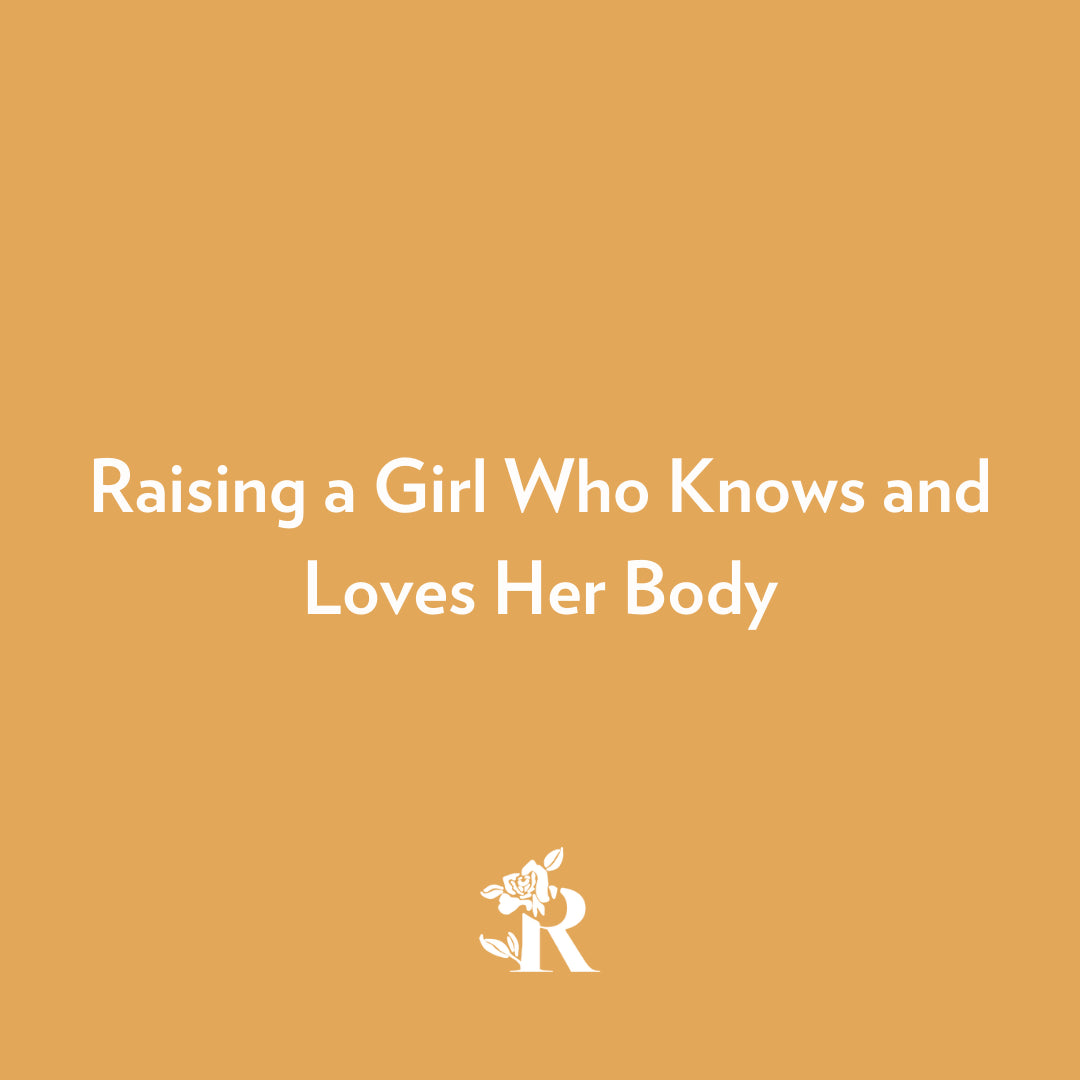Raising a Girl Who Knows and Loves Her Body
Happy International Day of the Girl! Today I'm sharing part of some research on raising girls who love their bodies.
Girls at menarche don't suddenly appear, fully formed, as young women. By this point, they have accumulated more than a decade of impressions and ideas about themselves, their bodies, their worthiness, and how they are expected to behave.
If they don’t enter adolescence with boundaries and a sense of self, they are set up to have body shame, feel pressure to conform, and to not know what they want or how to talk about it. They often don’t know how to assert their needs with adults—and in the worst cases, they are vulnerable to violation.
There is an immense opportunity in the first 12 years of a girl’s life for our next generation of women to be purged of unhelpful, regressive beliefs.
Studies have shown that mothers carry the culture of womanhood within them.
So when we change our own worldviews, our daughters pick up on it. To prepare a girl for a life where her woman-self experiences sensual, sexual, and reproductive joy, parents can teach their daughter (or daughters!) to:
These rules could apply equally to boys in our culture. But women have a larger set of cultural body challenges, and more predatory behaviors to recognize and overcome.
It's the job of adults to protect children, but we can't be there for them all the time. So how do we help them protect themselves? Shockingly, one in nine girls under the age of 18, and one in 53 boys, experience sexual abuse or assault at the hands of an adult. There are places where kids are particularly at risk, and we need to monitor their physical environments. Some of the riskiest places are with so-called "trusted" adults! So a lot of their preparation for such situations must be internal.
“I do what I am told” is one of the most damaging messages to a girl's sense of self. Girls (and boys) have to know what to say when an adult oversteps a boundary. To do this, they must be comfortable with “respectful disobedience”: knowing safety protocols, and intuiting when it is not safe to do what an adult says. And when our daughters and sons approach us with their concerns, we as adults have to listen and act.
Let us keep unwinding unhelpful beliefs in ourselves, our daughters, and our granddaughters.
All love, to your eternal beauty.
Christine Marie Mason
Founder, Rosebud Woman
Girls at menarche don't suddenly appear, fully formed, as young women. By this point, they have accumulated more than a decade of impressions and ideas about themselves, their bodies, their worthiness, and how they are expected to behave.
If they don’t enter adolescence with boundaries and a sense of self, they are set up to have body shame, feel pressure to conform, and to not know what they want or how to talk about it. They often don’t know how to assert their needs with adults—and in the worst cases, they are vulnerable to violation.
There is an immense opportunity in the first 12 years of a girl’s life for our next generation of women to be purged of unhelpful, regressive beliefs.
Studies have shown that mothers carry the culture of womanhood within them.
- Know her intrinsic worthiness
- Learn that her body belongs to her
- Name her intimate body parts
- Normalize talk about all of her body
- Feel her body from the inside, not just look at it from the outside
- Find her joy in movement
- Name her likes, dislikes and desires
- Know that she is not limited by gender
- Protect herself from ill-intentioned adults
- Christia Brown, an expert in adolescence, says, "It's about using your body in a way that feels comfortable and strong to you, and feels that you're the agent in charge of your own being—not an object for someone else."
These rules could apply equally to boys in our culture. But women have a larger set of cultural body challenges, and more predatory behaviors to recognize and overcome.
It's the job of adults to protect children, but we can't be there for them all the time. So how do we help them protect themselves? Shockingly, one in nine girls under the age of 18, and one in 53 boys, experience sexual abuse or assault at the hands of an adult. There are places where kids are particularly at risk, and we need to monitor their physical environments. Some of the riskiest places are with so-called "trusted" adults! So a lot of their preparation for such situations must be internal.
“I do what I am told” is one of the most damaging messages to a girl's sense of self. Girls (and boys) have to know what to say when an adult oversteps a boundary. To do this, they must be comfortable with “respectful disobedience”: knowing safety protocols, and intuiting when it is not safe to do what an adult says. And when our daughters and sons approach us with their concerns, we as adults have to listen and act.
Let us keep unwinding unhelpful beliefs in ourselves, our daughters, and our granddaughters.
All love, to your eternal beauty.
Christine Marie Mason
Founder, Rosebud Woman



























